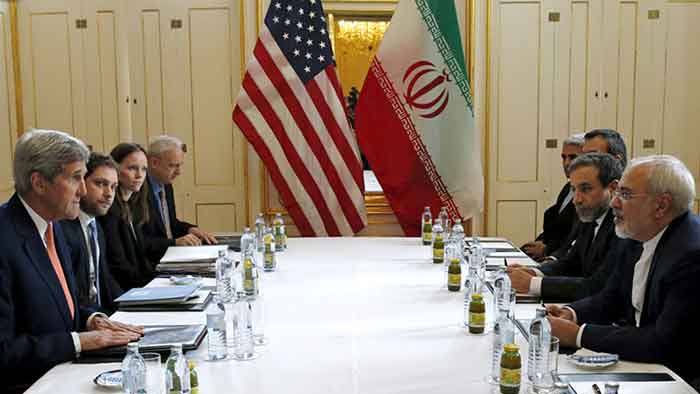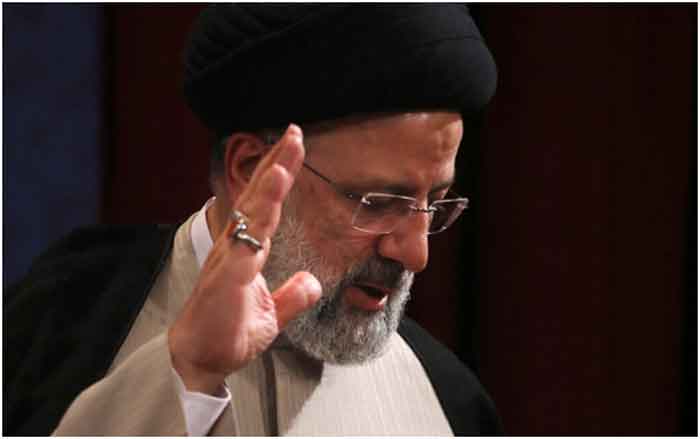
The world has been speculating about a significant advancement in an interim deal regarding Iran’s nuclear program.However, Iran’s Supreme Leader Ayatollah Ali Khamenei stated on Sunday that if Iran were to pursue a nuclear arms program, the West would not be able to prevent it, calling any talk of Tehran seeking nuclear weapons a falsehood. Khamenei emphasized that Iran’s religious beliefs prohibit the pursuit of nuclear arms and suggested that the West is aware of this. Due to these statements and current discourse about the trajectory of Iran’s nuclear weaponry, there have been rising tensions among stakeholder states, especially Isreal. Iran’s stance affects the world order, acting as a possible hard blow to the US’s waning position at the top.
The Iran nuclear agreement, officially known as the Joint Comprehensive Plan of Action (JCPOA), was a historic accord signed in July 2015 between Iran and several world powers, including the United States. The purpose of the deal was to place significant restrictions on Iran’s nuclear program in exchange for sanctions relief.
The negotiations leading to the JCPOA involved the five permanent members of the United Nations Security Council (the United States, the United Kingdom, France, Russia, and China) plus Germany, collectively known as the P5+1. The objective was to ensure that Iran’s nuclear program would be rolled back to the extent that it would take at least one year for Iran to develop a nuclear weapon. This timeline would provide world powers with sufficient opportunity to respond if Iran were to pursue nuclear weapons.
Under the terms of the JCPOA, Iran agreed to dismantle a large portion of its nuclear infrastructure and submit to more extensive international inspections of its facilities. This move aimed to reduce the risk of Iran acquiring nuclear weapons and thereby decrease the likelihood of conflict in the region. In return, Iran would receive relief from economic sanctions imposed by the international community.
The agreement specifically required Iran to limit its uranium enrichment activities, reduce its uranium stockpile, and decrease the number of centrifuges it could operate. It also prohibited Iran from enriching uranium at the Fordow facility and made modifications to the Arak heavy-water reactor to prevent the production of weapons-grade plutonium. Furthermore, the deal established a comprehensive monitoring and verification system overseen by the International Atomic Energy Agency (IAEA) to ensure Iran’s compliance.
However, in 2018, President Donald Trump announced the United States’ withdrawal from the JCPOA, citing concerns about Iran’s missile program and regional influence. The exit led to a significant setback for the agreement, as the United States played a crucial role in implementing and enforcing the sanctions relief measures. Without the participation of the United States, the effectiveness of the deal was significantly diminished.
Following the U.S. withdrawal, Iran gradually began to disregard some of the limitations imposed by the JCPOA. It increased its uranium enrichment levels, stockpiled larger quantities of low-enriched uranium, and resumed activities at previously restricted facilities. These actions raised concerns among the remaining parties and undermined the agreement’s effectiveness in curbing Iran’s nuclear program.
In 2021, with the inauguration of President Joe Biden, the United States expressed its willingness to rejoin the JCPOA if Iran returned to full compliance with its obligations under the agreement. Negotiations between Iran and the remaining parties, known as the E3+3 (France, Germany, the United Kingdom, Russia, and China), commenced with the aim of reviving the deal.
However, the negotiations faced challenges as both sides had divergent views on the steps required to reinstate the original agreement. Iran demanded the lifting of all U.S. sanctions imposed since the U.S. withdrawal, while the United States sought a more comprehensive and broader agreement that addressed Iran’s ballistic missile program and its regional activities.
Israel has expressed concerns about its diminishing ability to influence the ongoing discussions between the United States and Iran. Previous attempts by Israel to rally significant opposition in the U.S. Congress against previous agreements with Iran have proven unsuccessful. Israel’s position on Capitol Hill has weakened, with the Senate now controlled by Democrats, and some Democratic senators who opposed the 2015 deal are reluctant to align with Israel in opposing the Biden administration’s approach on Iran.
Israel is also wary of potential conflicts with the progressive wing of the Democratic Party, which has grown in influence and holds a more critical view of Israel. Direct confrontation between Israeli Prime Minister Benjamin Netanyahu and President Biden on Iran could strengthen this progressive faction and lead to a less pro-Israel stance from the administration.
Moreover, Israel does not anticipate significant toughening of stance by European countries, such as Germany, France, and the U.K., in the nuclear talks. Europe prioritizes maintaining a unified front with the United States and is cautious about the talks collapsing and the potential for military conflict with Iran, which could divert resources from other pressing issues such as the Ukraine crisis.
In the past, Israel sought support from moderate Sunni countries, particularly the Gulf states, in opposing the 2015 nuclear deal. However, there has been a growing Arab-Iranian rapprochement, and Israel no longer expects significant Arab opposition to any new understandings that may be reached.
The trajectory of Iran’s nuclear program has implications for regional stability, the balance of power, and the effectiveness of non-proliferation efforts. In an increasingly multipolar world, the weight of sanctions by the US and its allies are seemingly becoming less severe. In this bold move, Iran has raised anxieties of different states, and the effects of which we will see in the world order.
Neha Tuheen is an undergraduate student of International Studies at FLAME University, Pune.
Email: [email protected]













































